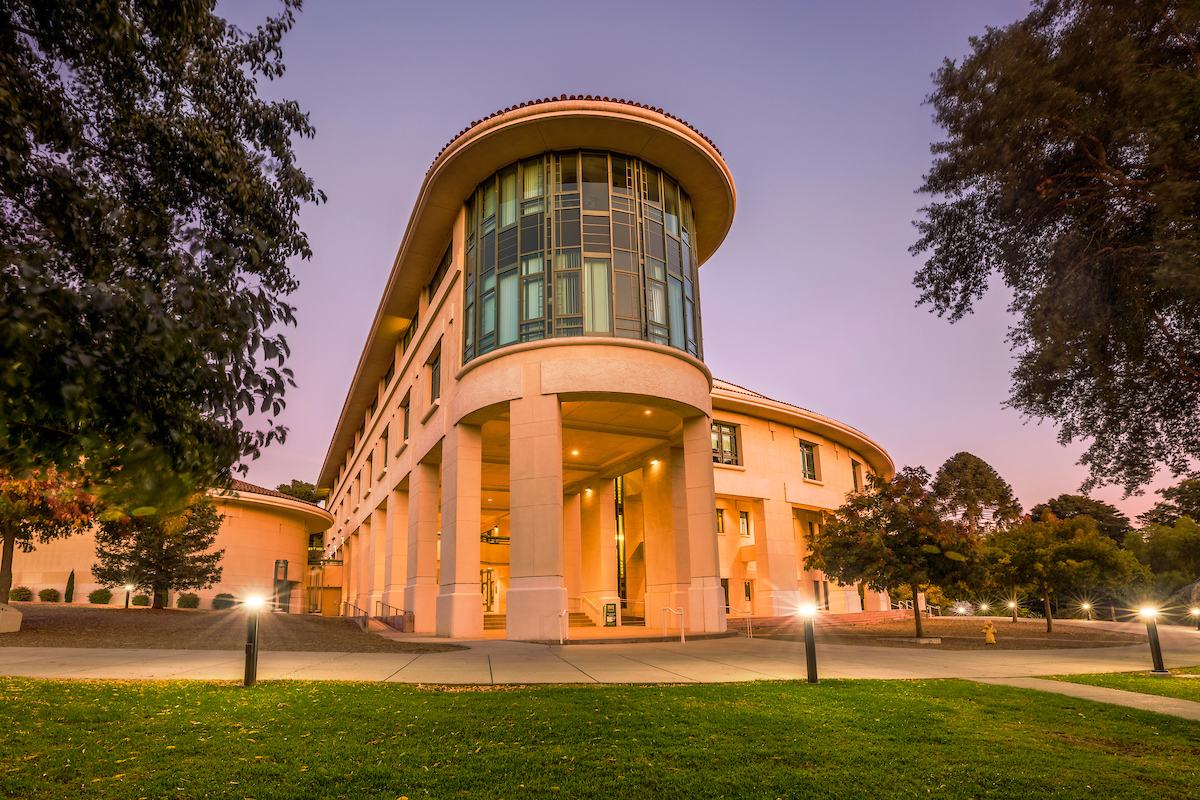Senior projects are a norm across Cal Poly’s campus. These graduation requirements differ between the university’s six colleges and, in the Orfalea College of Business, differ between concentrations.
Within the realm of entrepreneurship, students are able to choose from one of two “senior sequences.” In one sequence, students get to work with a San Luis Obispo-based startup. In the other, students are given the opportunity to experience building their own company.
The latter sequence, referred to as “Experience Building a Startup,” most directly involves engineering students and business students concentrating in entrepreneurship, but students from all six colleges are welcome to take the course with their respective department’s permission.
For engineering students, the three-quarter Learn by Doing project acts in-totality as their senior project and consists of ENGR-463, ENGR-464 and ENGR-465. For non-engineering students, the sequence involves three, four-unit classes, in which one counts as their senior project credit: BUS-488: Building a Startup Skillset, BUS-487: Launching and Growing the Technology Start-Up, and BUS-464: Applied Senior Project Seminar.
“The course is ideal for anyone who thinks they want to start their own venture and want to see what that’s like, and it’s great for people who want to be a product manager,” explained one of the two course professors, Dr. Tom Katona. “The top feedback I get on why students choose this sequence, though, is that they want to take classes with people they haven’t been taking classes with for the last three years.”
The interdisciplinary nature of the course is what makes building a startup possible.
Over the course of the sequence, students form company teams to practice problem-solution tactics, ideation, customer development, competitive research, prototyping and user testing — all accomplished by having a range of skill sets and backgrounds involved.
And while some students come into the course with an idea for a startup or product, Dr. Katona says there isn’t a guarantee that a whole team will want to work on it, nor is it as simple as having a cool idea.
“I tend to tell students who say they have an idea of what they want to make that I’m far more interested in hearing about the problem that they want to solve,” he said. “Then we’ll let the time in class help them figure out what the right solution to that is.”
While students can continue to build their startups post-graduation, that isn’t always the outcome — but second sequence professor, and CIE Entrepreneur-in-Residence, Dan Weeks says that continuing on with the company students build isn’t the whole point.
“I think 5% of students will continue on with their created companies and 95% we’re teaching an entrepreneurial mindset to,” Weeks explained. “If you go through a 9-month program with all of the detail we offer, no matter where you work after college, you’re going to look at things differently.”
This is exactly the reason mechanical engineering senior George Luebkeman chose this senior project.
“As an ME student, this option sounded like an excellent way to learn the fundamentals of entrepreneurship, which really sets me apart from other applicants for jobs I am applying to,” he said. “Having a Cal Poly engineering education paired with this entrepreneurship experience makes one a prime candidate for small, disruptive tech companies.”
Similarly, electrical engineering senior Russell Caletena says this senior project was one he couldn’t pass up.
“[The course has] taught me to prioritize empathy, creative thinking, and perseverance when working with others for a shared common goal,” he said. “The skills gained, challenges faced, and people I’ve networked with are all valuable experiences I’ll not only cherish, but also apply to my post-grad plans.”
Luebkeman and Caletena are students who plan to utilize their entrepreneurial mindset within already-established organizations in the future — often called “intrapreneurs.”
Business administration senior Kasey Moffitt, however, plans to take the knowledge she learns in this sequence to one day build her own company.
“As an entrepreneur, my ultimate goal is to one day start my own business,” she explained. “My entrepreneurship courses have given me a glimpse into how to start a business, however this course is giving me the hands-on experience that you can’t get from a textbook.”
Regardless of students’ post-grad game plans, this senior sequence provides them with endless experiential knowledge and the ability to mold the course to their needs.
“This is the good and the bad: there’s a lot of ambiguity in the class,” Dr. Katona said. “We can’t tell these innovative students exactly what to do, but we do understand the process by which these things get off the ground and that’s what [Weeks and I] help with.”
And as daunting as it may sound to build a startup versus taking a more typical senior project, course professors and students alike advocate for the course as the ultimate “Learn by Doing” experience with the safety net of school.
“Our whole attitude here is to fail often, but fail early,” Weeks explained. “You don’t know what you don’t know until you do things. That’s what Cal Poly is all about.”
Through this hands-on senior project, Caletena’s biggest takeaways have been to “think bigger,” “be bold” and “explore beyond your comfort zone.”
“For me, senior project means a lot more to me than a grade on paper,” said Caletena. “The sky is not the limit; the limit is whatever you set it to be and I strongly believe that ideas, no matter how small or big, can truly make a difference in people’s lives as long as we continue to pursue them wholeheartedly to bring them to reality.”
Ultimately, that is the essence of this entrepreneurial senior sequence: setting future intrapreneurs and entrepreneurs up for success and apart from others to make a difference in the real world.
